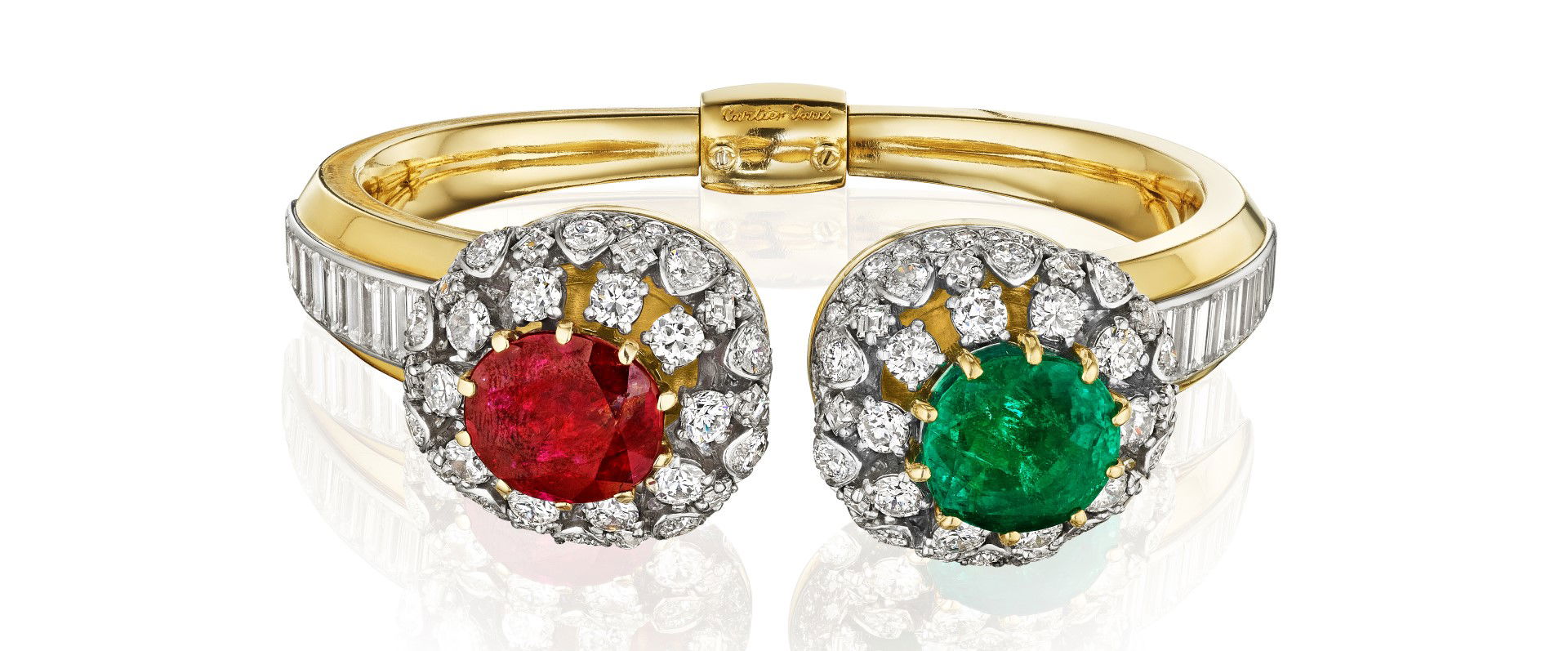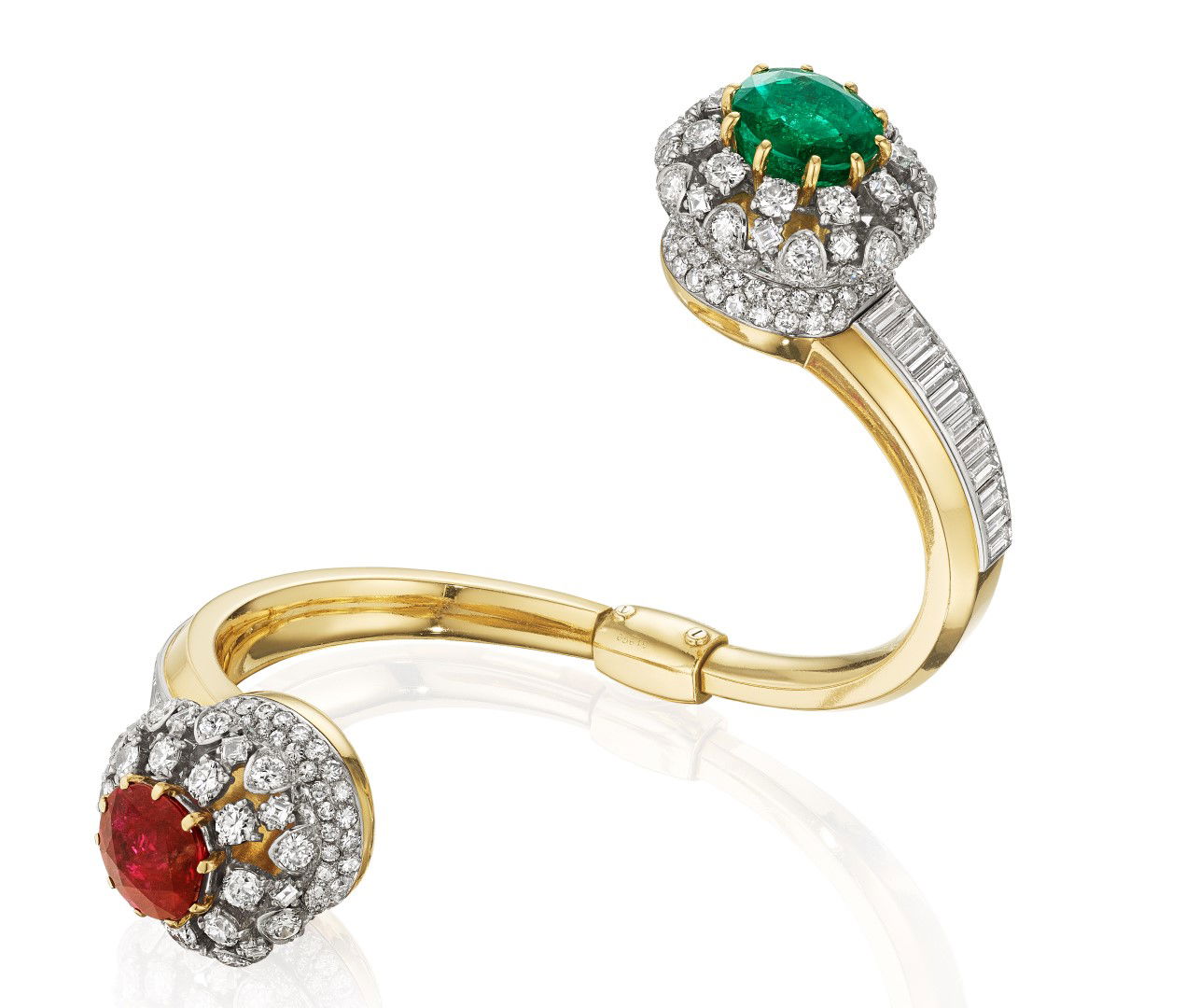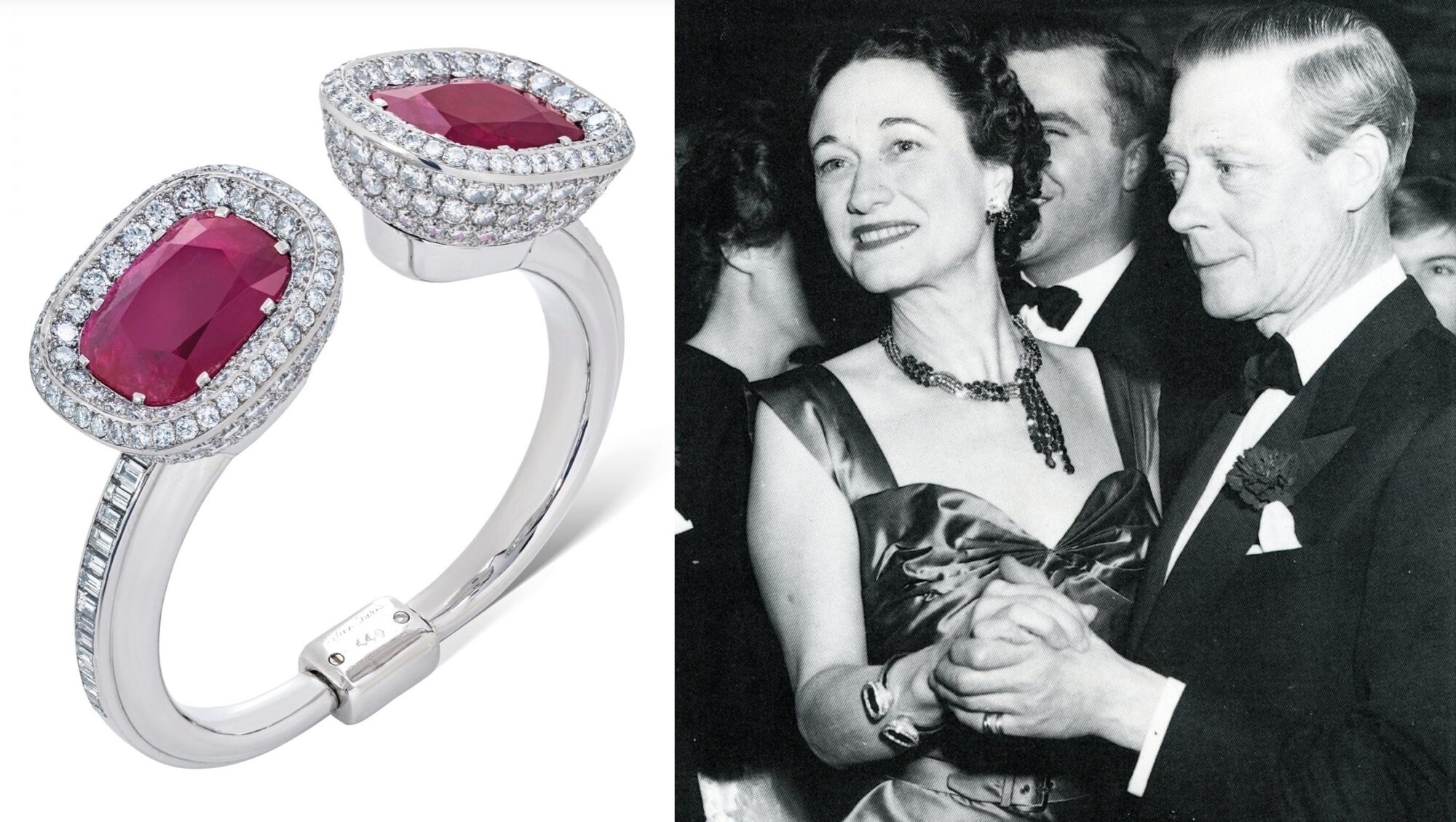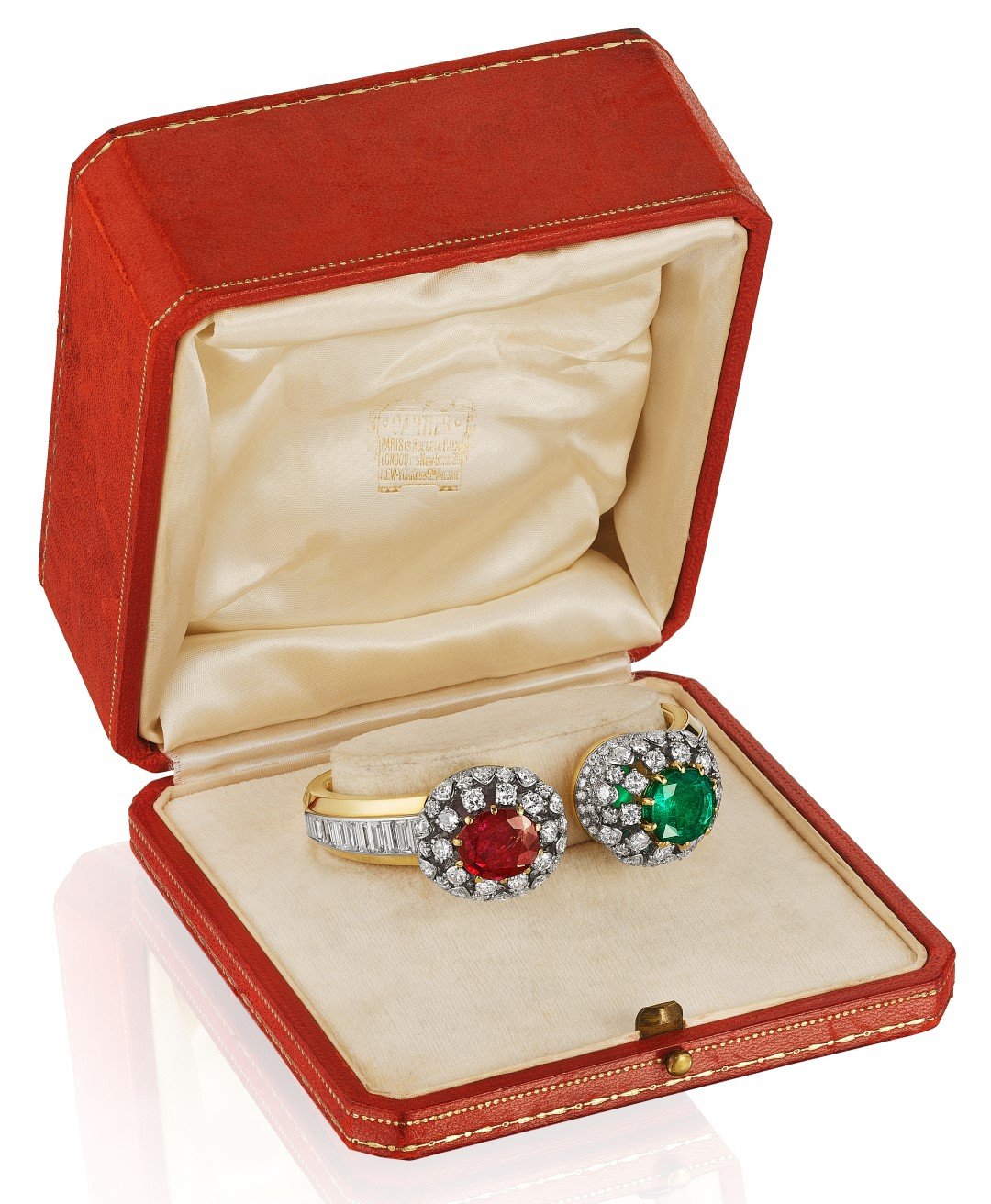Over the era the flat strap designs favoured during the Art Deco period started to be exchanged for bold, voluminous constructions which relied less on decoration and more on plastic, sculptural effects.
An imposing ruby, emerald and diamond penannular bangle, Cartier, early 1940s
We admire this impressive bangle which is a good example of the evolution in design of bracelets between the late 1930s and early 1940s.


We are reminded of a slightly earlier bracelet, also of penannular form, created by Cartier for the Duchess of Windsor in 1938, set with two large rubies in dish settings, pavé-set with diamonds. The same sprung mechanism appears in both examples.


written by

Further details:
A cuff bracelet composed of two diamond-set terminals of open-work bombe form, one centering an emerald and the other centering a ruby; the sides set with graduated baguette diamonds set into a polished gold cuff; mounted in 14-karat gold and platinum, with French assay marks
– 1 emerald, weighing 10.6 carats
– 1 ruby, weighing 7.14 carats
Signed Cartier Paris, 05819
Dimensions: 2 5/8 x 2 7/8 inches, inner circumference: 6 1/2 inches
Certification: Swiss Gemmological Institute (SSEF) Gemstone Report no. 99713 dated May 4, 2018, stating that the oval natural beryl emerald has minor oil and is Colombian in origin | Swiss Gemmological Institute (SSEF) Gemstone Report no. 119006 dated October 15, 2021, stating that the oval natural corundum ruby has no indications of heating and is Burmese in origin
For further information on the ruby, emerald and diamond bangle:
info@understanding-jewellery.com
